Accounting is the language of business for Investor Relations
Senior Director of Investor Relations
Realogy Holding Corps.
Madison, New Jersey
Graduates from the MAC Program at UNC Kenan-Flagler have become leaders at all levels of the accounting profession. They work in offices from coast to coast and around the world. They work as tax accountants and auditors and in corporate finance roles. Best of all, they work together as part of the strong, ever-growing UNC network.
(Select photo to watch video and/or read profile.)
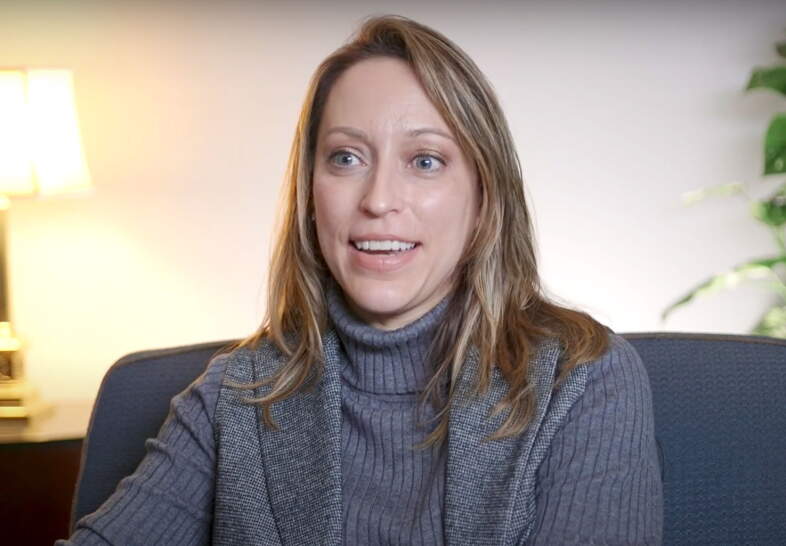
Senior Director of Investor Relations
Realogy Holding Corps.
Madison, New Jersey
Danielle Kloeblen
Senior Director of Investor Relations, Realogy Holding Corps.
Former Director of Corporate Finance/Investor Relations at McGraw-Hill
Danielle Kloeblen knew she needed in-depth knowledge of complex accounting concepts to get to the next step. She was already a seasoned business professional when she decided to advance her career by pursuing her Master of Accounting (MAC) at the UNC Kenan-Flagler Business School. As the Senior Director of Investor Relations at Realogy Holding Corps., Danielle serves as a vital liaison between senior leadership, analysts, and other business stakeholders associated with the company.
When Danielle started transitioning over to investor relations from her previous role, she recognized a need for continuing her education and decided to enroll in a masters-level accounting program. “As I evolved… it became more critical to understand not only our financial statements, but really the accounting frameworks and the FASB rules and structures… and how they could impact the story and the business model,” she explained. After researching the options available, she decided to apply to the UNC Kenan-Flagler MAC program’s online format due to its top rankings and reputation.
During the program, Danielle found that she was able to apply what she was learning in the classroom to her professional life in real-time. Being grounded in accounting gave her the baseline she needed to work across a wide range of business teams successfully. “For me, I look to this as a steppingstone to get me to that next level and assume more of a leadership role,” she said. “Having this foundation is really important because it’ll take me help me in my current role, but also help me position for growth in the future.”
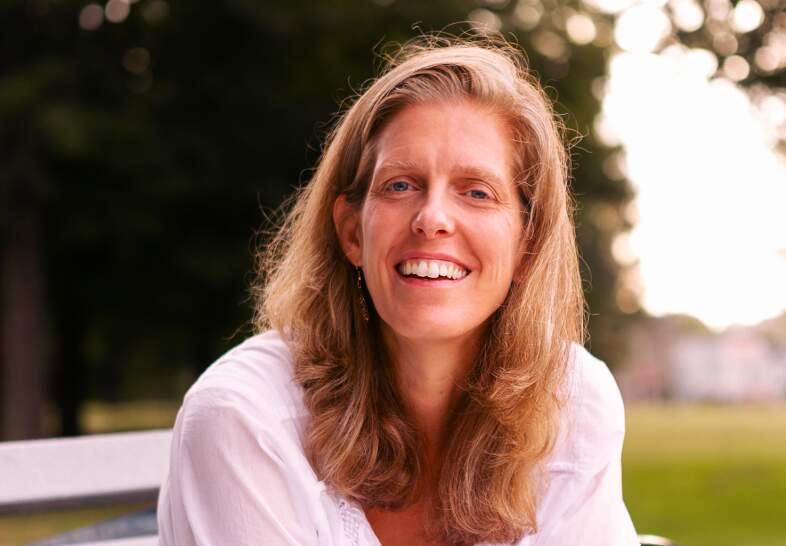
Louise Reed
CEO and Founder, Afloat
Former owner of Louise W. Reed, CPA
Louise Reed
CEO and Founder, Afloat
Former owner, Louise W. Reed, CPA
Tax accounting might not seem like the right career path for someone who has the strategic perspective and creative thinking skills of an entrepreneur.
But Louise Reed (MAC ’03) is combining her liberal arts undergraduate with a UNC Master of Accounting degree in an entrepreneurial venture that has the potential to transform how hundreds of millions, or perhaps billions, of dollars of state tax credits are bought and sold each year.
It started with doctors’ offices. After spending several years teaching math and physics to high school students (Reed has bachelor’s and master’s degrees in physics), she went to work in the late 1990s helping physicians’ offices manage their accounts receivables.
“I learned that the doctors only listened to two people: their accountant and their lawyer,” she says. As she considered her own career, she discovered that “every job I wanted required a CPA license.” A master of accounting degree, which would prepare her for CPA licensure, was the obvious choice.
“The fact that the MAC program allowed you to have a liberal arts undergraduate degree was huge,” she says. “I had no business classes, no accounting classes.”
The UNC MAC program’s job placement track record — with 98% of graduates getting jobs at the end their degree program — was also important.
After graduating in 2003, Reed went to work in an accounting firm handling small business clients. She also spent part of her time exploring technology, volunteering to beta test cloud-based tax preparation software for one of the biggest providers of CPA tax software.
She thought strategically and had ideas — lots and lots of ideas.
“Louise, you think strategically and you’re very creative,” her supervisor told her. “If you can just spend more time packaging your ideas …”
It was “the nicest, most helpful feedback I’d ever gotten,” Reed says. “I thought, ‘I’m only sharing 2% of my ideas.’”
She sought out advice from Doug Shackelford, then the Meade H. Willis Distinguished Professor of Taxation, founder of the UNC Tax Center and dean of UNC Kenan-Flagler. He suggested academia or entrepreneurship might be a better fit for her. Since she had taught already, she decided on entrepreneurship.
Reed founded her own accounting firm that focused on serving small businesses. While she’s run that business since 2006, in more recent years she’s become interested in cryptocurrencies and, more significantly, the blockchain technology they’re based on.
Blockchain mathematics reminded her of concepts she had first learned as a physicist, and it provoked some new ideas at the intersection of technology and tax.
“This technology is so transformative,” she says. “It was like learning about relativity for the first time.”
Many states provide tax credits for things like protecting farmland from future development or redeveloping historic buildings. Tax credits for carbon emissions, to combat climate change, could be on the horizon. These credits are often bought and sold because they can’t always be profitably used by the individual or business that qualifies for them.
For example, imagine a farmer who signs covenants to protect his farmland from future development to preserve natural space. The tax credits could be worth tens or hundreds of thousands of dollars to offset taxes. But if the farmer is only earning, say, $50,000 per year, the annual tax bill might not be big enough to recoup the entire value of the tax credit.
However, tax credit holders can often sell them at a discount to others who have enough profits to make buying the credits worthwhile. It’s a win-win-win: The state protects private land from development; the farmer is paid for giving up future development profits; and tax credit purchaser gets a lower tax bill. In Virginia alone, where Reed is based, the state authorizes $75 million per year in land preservation tax credits.
Currently, though, most tax credits are bought and sold through an opaque set of brokers. Reed thought blockchain technology, which can record transactions in accessible but secure online data, makes an open marketplace for tax credits possible. She founded Afloat in 2018 to turn the idea into reality.
The company is still in its early stages — spreading awareness, finding initial users and proving the technology. But Reed says her UNC MAC experience prepared her well. Not only did she gain business, accounting and tax expertise relevant to her company, the culture of UNC Kenan-Flagler has influenced how Reed thinks about business and marketplaces.
“The MAC program wasn’t in isolation. It was connected to the MBA Program. It was connected to the Kenan Institute. It was connected to UNC as a whole … You weren’t learning in isolation,” she says. “The entire business school at UNC, I felt, was like a role model for how to run a company.”
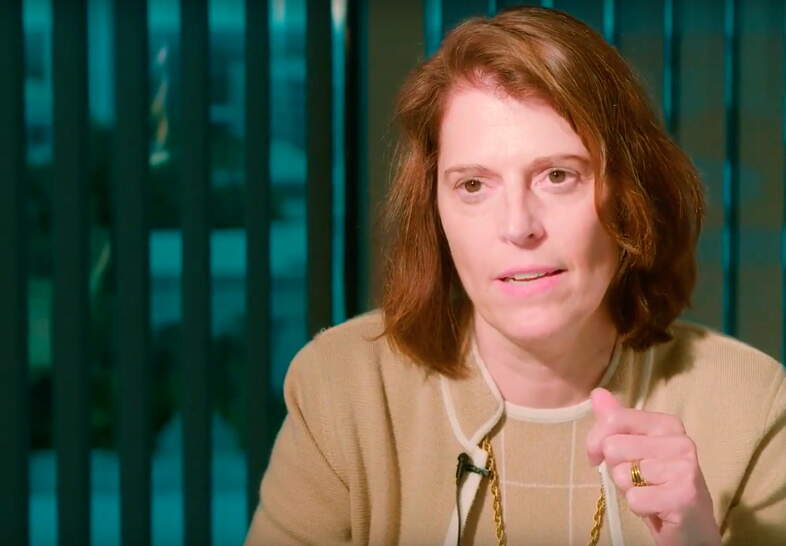
Nancy Millett
CFO, Engineered Floors, LLC
Former Global Tax Lead, Deloitte
Nancy Millett
CFO, Engineered Floors, LLC
Former Global Tax Lead, Deloitte
Nancy Millett, a 1983 BSBA/Accounting graduate, is a successful business leader. Based in Atlanta and serving as Deloitte’s Global Tax Lead and U.S. Inbound Services Lead, she’s an impressive woman with an important role. She pairs her deep experience in accounting, and tax issues specifically, with her broad business insight to help her clients launch products into new markets, take on mergers and acquisitions, and make sound fiscal decisions with confidence.
Nancy is also exceptionally down to earth. She embodies the spirit of Carolina’s alumni network — dynamic, progressive, hard-working, and yet always ready to help a fellow Tar Heel. We met Nancy in Deloitte’s Raleigh office where she shared stories from her career at Arthur Andersen and Deloitte as well as her perspective on the accounting profession.
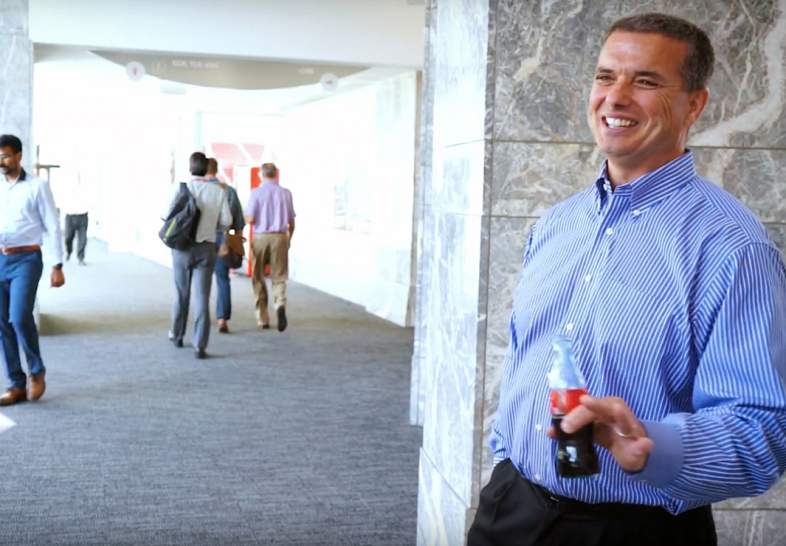
David Byers
VP Controller, Coca-Cola North America
David Byers
VP Controller, Coca-Cola North America
As VP Controller for Coca-Cola North America, David Byers (BSBA/Accounting, ’86) leads a number of finance and operational teams for one of the world’s most well-known and respected brands. After a short stint in public accounting, David joined Coke and has worked in numerous roles — including several international locations — within the company. He credits his background in accounting, and auditing in particular, for his ability to grow professionally and to help “drive business results”.
A proud Kenan-Flagler grad, David met with us in Coke’s Atlanta headquarters to discuss the role of the corporate controller and how companies large and small benefit from the expertise the controller delivers. “As a controller, you get to get to see what is happening and ask questions,” notes Byers, “and you help drive the business results.”
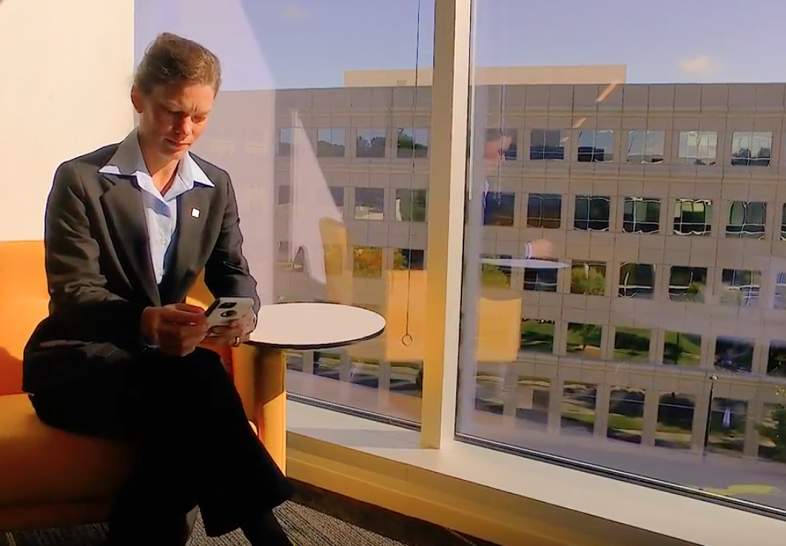
Amy Baker
Assurance Partner and Market Leader, EY
Amy Baker
Assurance Partner and Market Leader, EY
Amy Baker, a 1993 MAC graduate, knows what it takes to build teams that deliver results. As an Assurance Partner and Market Leader, she brings the right people to the table to create business solutions for EY’s top clients. Amy also actively recruits new employees for her organization, which gives her a unique perspective on both the higher-education landscape as well as the key characteristics that point to a new accountant’s success within the profession.
Amy recently spoke at the graduation ceremony for UNC’s first class of online Master of Accounting students. In our interview with Amy, she talked at length about the important impact that online education is having on her firm and the accounting profession.
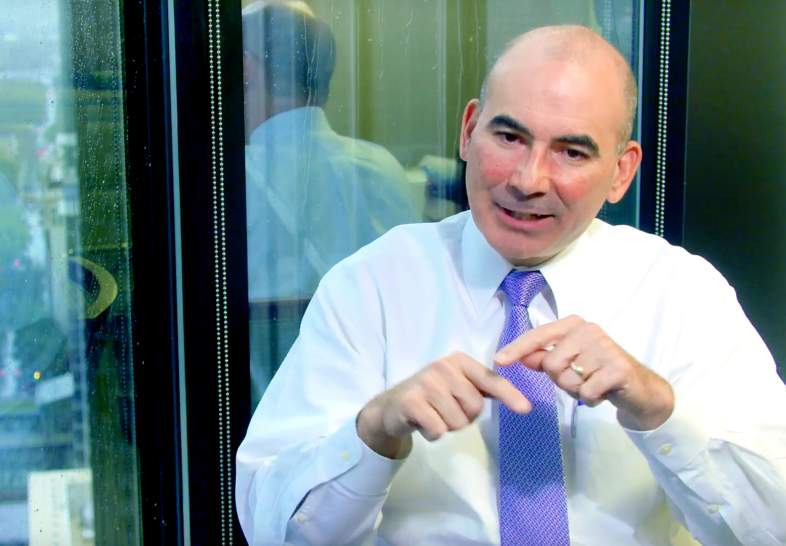
Trent Gazzaway
Global Leader, Service Line Capabilities and Quality, Grant Thornton
Former National Managing Partner
Trent Gazzaway
Global Leader – Service Line Capabilities and Quality, Grant Thornton
Former National Managing Partner, Professional Standards
Trent Gazzaway, a 1991 MAC graduate, knows what it takes to become a successful accountant. He serves as National Managing Partner, Professional Standards, for Grant Thornton, but also makes regular appearances in Chapel Hill as part of his firm’s recruiting efforts and as a guest lecturer.
When we met Trent in Grant Thornton’s Charlotte office, he shared remarkable insights on the accounting profession, on the soft skills required for success in the profession, and on the reasons why UNC Master of Accounting graduates stand out from students at other schools.
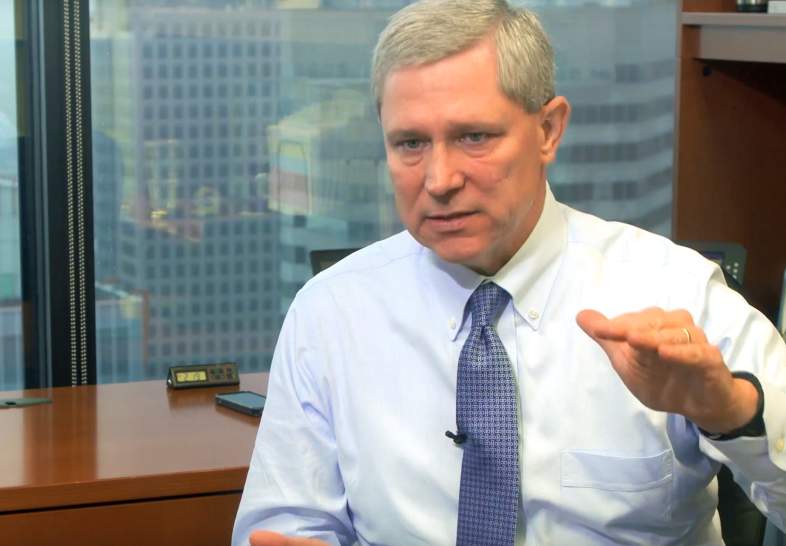
Jeff Burgess
National Managing Partner, Professional Standards, Grant Thornton
Jeff Burgess
National Managing Partner, Professional Standards, Grant Thornton
Jeff Burgess, a 1984 BSBA/Accounting graduate, sees the big picture. As Grant Thornton’s National Managing Partner of Audit Services, he steers a big ship from his Charlotte office, providing the firm’s clients with accounting services that are critical to their success.
In our interview, Jeff shared his insight on the important connection between accounting and broader business issues as well the key difference between an MBA and an accounting degree. Jeff noted, “The most successful business people I see out there have a strong knowledge of the financial statements and what they tell you about how a business operates.”

Sophia Woo
Managing Director, District C
Former Owner/Chef/Reality TV star, Phonomenal Dumplings
Sophia Woo
Managing Director, District C
Former Owner/Chef/Reality TV star, Phonomenal Dumplings
For one UNC Kenan-Flagler graduate, accounting know-how has been an essential ingredient for entrepreneurial success.
Sophia Woo, BSBA ’10/MAC ‘11, along with her business partner and high school friend Sunny Lin, a biomedical engineer, started a food truck in Raleigh in 2014 after working in more traditional jobs. Their Pho Nomenal Dumpling Truck combines traditional recipes from family and friends with original creations. It’s become a phenomenon in the Triangle.
It also became a national television phenomena, winning first place and a $50,000 grand prize on the sixth season of the Food Network’s Great Food Truck Race.
Woo’s accounting expertise have been a big part of Pho Nomenal’s winning recipe.
“My time at UNC and my time at PwC were both vital,” she says. “I might not understand this legal document, but I can sit down and work my way through it. That’s from my training from Kenan-Flagler.”
From finances to taxes to the cooking itself, Woo’s business expertise has been critical to the truck’s success.
“Making dumplings, it’s a high touch process,” she says “That’s something that we’ve constantly made better and better and better. My tweaking of the process, that has come a little bit from the business world.”
After earning her MAC degree, Woo went to work at Big Four accounting firm PwC in auditing. Her education and that job prepared her for food-truck entrepreneurship.
“You’re there at the client site doing an audit,” she says. “They’re not happy you’re there, but they’re paying you. Being able to balance all those relationships and keep people happy was one of the biggest things I was able to learn.”
It’s not that different from keeping customers happy, hob-knobbing with food truck rodeo promoters and networking with other truck operators.
The move from public accountant to entrepreneur took a couple years. She liked PwC and her job, she says, but it wasn’t a good long-term match. On nights and weekends, another passion was simmering.
She was living with two Asian-American roommates, and the three would prepare food from family recipes. “Every day I would come home and they would teach me a new thing that their parents had taught them,” she says. Dumplings and pho were staples, and have become mainstays of the truck’s menu.
“PwC was a fantastic firm — the best firm I could have been in,” she says. But her love of cooking was calling to her, and with the food truck trend heating up, she and Lin decided to find out if they could turn their passion into profits.
With $17,000 from a Kickstarter campaign and some savings, the pair bought a $7,000 truck off Craigslist and outfitted it. It hit the streets in 2014.
In 2015 they got a big break: a chance to compete on the Food Network’s sixth season of the Great Food Truck Race. The show pits seven food trucks against each other as they travel from Los Angeles to Chicago along Route 66, completing various challenges along the way.
Their truck broke down the first week and they had to have it towed. Woo negotiated with hotels to park the truck overnight in their parking lots. “It was little deals like that, all over the place, that kept us in the competition,” she says. “We never expected to win.”
In the season finale, Woo and Lin faced off with the other finalist, a company with five food trucks and two restaurants. Their opponent had 40,000 followers on Instagram vs. Pho Nomenal’s 800. But they didn’t have a UNC MAC graduate.
Pho Nomenal became the first East Coast team and the first all-female team to win first place on the show.
“The show was a huge eye opener and sort of re-inspired Sunny and I, because we saw all the things we could be doing,” Woo says.
Now the two are planning a brick-and-mortar restaurant. Woo knows entrepreneurship is tough.
Seventy percent of all nonfranchise restaurants fail in the first three years, she notes. Though it seems unlikely, if Pho Nomenal falls victim to that, she’ll still have options. “I keep up with my CPA,” she says. “I keep up with my continuing education.”
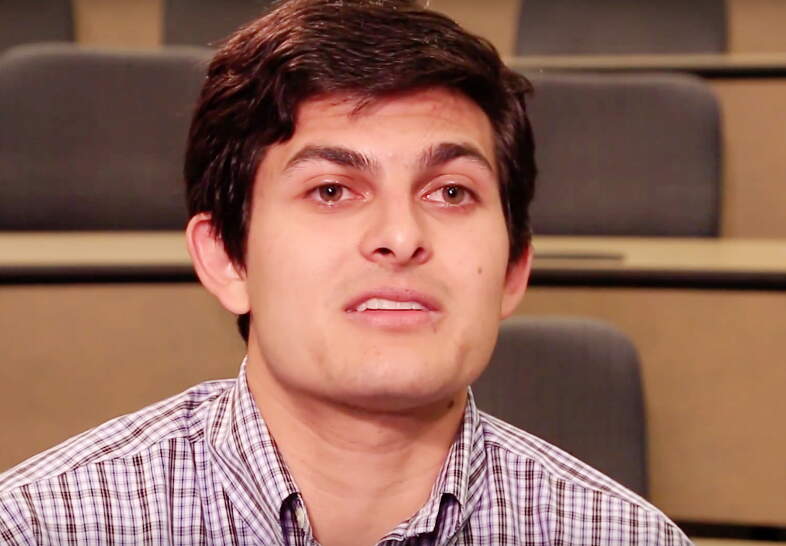
Dominick Viramontes
Director, Business Insights, McDonald's
Former Analysis Group
Dominick Viramontes
Director, Business Insights, McDonald’s
Former Analysis Group
Dominick Viramontes (MAC ‘15) earned an accounting degree because he wanted to be an expert in something.
Even in business, he says, people respect accounting skills. “You tell them, ‘I know some accounting,’ and their eyes light up.”
So when the opportunity came along to apply to become a Postgraduate Technical Assistant (PTA) at the Financial Accounting Standards Board, he jumped at it.
FASB is the entity that writes the rules that accountants follow when working with businesses and nonprofits. It is, for new MAC graduates, the accounting equivalent of clerking at the Supreme Court (well — the Supreme Court has 36 clerks each year, FASB employs just 20 PTAs).
That experience and his UNC MAC education have led to a career he couldn’t have imagined — that he didn’t even know existed — just a couple years ago.
Making impressive impact on the profession FASB’s PTAs end up earning expertise in accounting’s most fundamental rules, the standards and principles accountants follow.
“It was really cool,” Viramontes says. He had a talent — and thanks to UNC, the education — for delving into accounting and developing the knowledge that FASB needs.
“Research I learned in Financial Reporting A and [Financial Reporting] B from Jana [Smith Raedy, Dean of the MAC Program],” he says. “I wouldn’t be here if she didn’t tap me on the shoulder.”
In another class, doing financial statement analysis, a professor suggested Viramontes had a talent for digging deep. “It was really intense, analyzing someone’s financial statements and trying to figure out if they had committed fraud,” he recalls. “One professor said, ‘You should get your PhD.’”
For a year, Viramontes and his fellow PTAs helped FASB understand complex accounting questions and write the rules that eventually become industry standards, part of the Generally Accepted Accounting Principles (GAAP) that are the bible for the field.
Because he had studied finance as an undergraduate business major, Viramontes was assigned projects in accounting for financial instruments: hedging, classification and measurement of financial instruments, and accounting for credit losses.
The experience gave him the opportunity him to become an expert on those topics. He spoke to accountants at accounting firms and to companies affected by potential rule changes. He was even involved in organizing an industry forum to get input from small banks on one of the issues he researched.
After years of learning about accounting in college, working at FASB was “like seeing behind the curtain in Oz.”
It was also a chance to develop a whole new set of professional relationships. “It’s almost like another alumni network,” Viramontes says.
“Here are people who are at the top of their accounting programs,” he says. “Everyone’s looking to make friends. You’re all interested in similar things. I met a lot of really cool people there.”
Opening new doors, and stepping through them
The role at FASB gave Viramontes more career choices, too. After immersing himself in the rules of accounting, Viramontes took a job where he could continue to do similar research.
He now works in Chicago at Analysis Group, a firm that supports lawyers involved in complex business litigation. He works with other accountants, as well statisticians, economists and other specialists. The job allows him to continue to explore accounting standards and how they’re applied — properly or improperly — in businesses.
“Lawyers hire us to do the analytics on a case, [for example], one company’s suing another for a merger and saying ‘Did you follow GAAP?’,” Viramontes explains. “You add that legal spin on to it as well. What holes can you poke in their logic? It just adds another layer of complexity, which makes it more interesting.”
It’s also opened his eyes to other career possibilities. Though he’s not going back to school (yet) — he’s too busy learning — he says his MAC has provided a foundation for a career that could lead him any number of directions.
“I find it hard to believe I couldn’t take what I’m learning here and apply it to a bunch of different business settings,” he says.
As Viramontes was finishing up his undergraduate degree, he was uncertain about whether he should take another year of school to get his MAC. That uncertainty has vanished now, he says. “I wouldn’t be here now if I didn’t do that.”

Kelsey Short
AMN Healthcare
Kelsey Short
AMN Healthcare
As an undergraduate sociology major, Kelsey Short worked with lots of nonprofit organizations. She admired their missions and impact, but she also saw that many weren’t very efficient or business savvy.
“I wanted to be able to combine my interests in the social impact world with a background in business,” she says.
Her interest in accounting solidified in a class she took as an undergrad from C.J. Skender, the most colorful and perhaps most experienced UNC MAC faculty member.
“I think he broke the stereotype of what an accountant was,” she says. “Having him as the professor showed me that you don’t have to be a one-dimensional hermit, just sitting in your own little world, typing away at your computer to be an accountant.”
In addition to accounting skills, the MAC Program’s focus on leadership and communication skills has been critical.
“I don’t think I realized it at the time, but after actually entering the workforce, that’s what it’s all about,” she says. “I sit in a room with 10 other people. We’re always bouncing ideas off each other and working as a team.”
Short says everything she’s learning about business from seeing the inner workings of publicly traded multinationals to smaller private firms, will better prepare her for a job with a purely social mission.
“I thought ‘I’ll do this for at least five years or so’ and [then] make a smooth transition over to social entrepreneurship or a nonprofit,” she says. “I never had in mind that I would be an accountant or an auditor for the rest of my life.’ However, being an accountant and gaining this experience is a fantastic stepping stone to get to where I want to be.”

Channing Flynn
Global Technology Tax Sector Lead, EY
Channing Flynn
Global Technology Tax Sector Lead, EY
Following a 1994 BSBA from the UNC Kenan-Flagler Business School, Channing Flynn’s 1995 UNC Master of Accounting degree (with a tax concentration), plus a work-your-butt-off attitude, have been his passport to living in Europe and earning a leadership position in a top global consultancy.
“With the right work ethic, you can go from a small coastal town in North Carolina to a great graduate school and then springboard into one of the world’s top four or five advisory firms within 12 months,” Flynn says. He always followed his parents’ advice and guidance that, with enough ambition and hard work, you can achieve anything you want.
When Flynn finished his undergraduate degree, he contemplated his next step. Law school? An MBA, maybe? He picked the UNC MAC Program given the high likelihood of a terrific job placement opportunity and the need to pay off a few student loans! Working at Spanky’s Restaurant as the evening and weekend bar manager throughout undergraduate and graduate school at UNC, Channing learned how to balance long hours with the need for high performance and prioritization – key elements of success in a professional advisory career.
“Everything that an MBA program and a law degree would have enabled me to do, I was already largely doing the first three to five years with EY,” he says.
In 1995, the newly minted UNC graduate took a job with EY in South Florida. After a year, he was offered a short-term expatriate assignment in Vancouver, British Columbia, on a significant U.S. international tax project for a major firm client. After this exposure to international taxation and global business, it was on to Silicon Valley in the years leading up to the mid-90s technology boom. “I was very lucky in that I was able to work on some of the biggest, most exciting tech companies during the initial technology explosion; it was very exciting, but we all also worked long hours and took every given opportunity to learn,” he says.
After expressing interest in a global assignment with EY’s global tax desk program, he transferred to Milan, Italy, in 2003, where he ran EY’s U.S. tax practice in the Mediterranean region. Upon extending his assignment, Paris was next, where he traveled to nearly 40 countries and was promoted to partner within the U.S. firm of EY. In 2009, he returned to the U.S., as an international tax partner, and, shortly thereafter, was asked to lead the firm’s Global Technology Tax Sector.
In this role, he now works with the firm’s largest global technology clients, serves a multitude of start-up to mid-size companies, and oversees the firm’s global technology and digital tax practices, helping to enhance the firm’s brand, thought leadership, and major account initiatives. He is typically on a different continent each quarter, but is currently limiting his travel time as much as possible to spend time with his 9-year old son Ethan, coaching his soccer, basketball, and baseball teams and teaching him to flyfish for California rainbow trout.
Channing also leads the firm’s recruiting efforts for EY’s global technology tax practice and is interested in speaking with anyone about a career in global tax serving the technology industry.
Not bad for a kid from a Carolina beach town.
“[The MAC degree] is the highest return on your graduate school money and more than I could have ever expected,” he says. “You will learn more and be able to ply that skill for some of the best companies in the world, literally all around the world, instantly.”
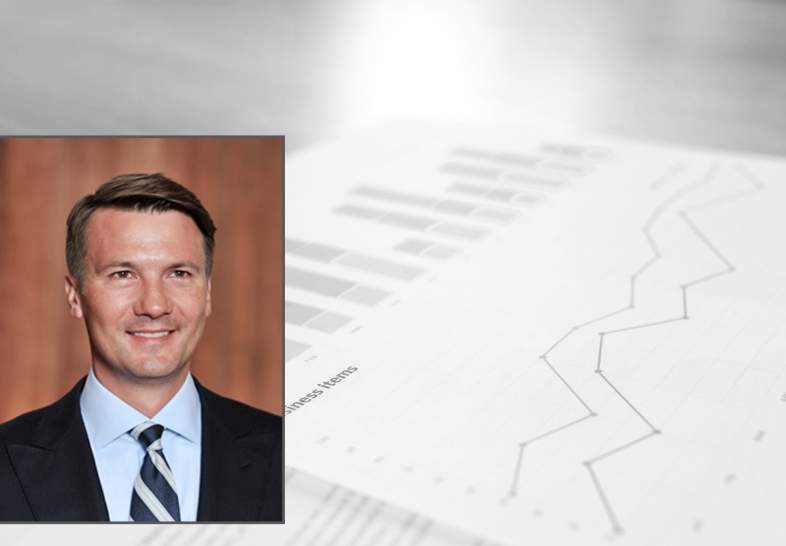
Nathan Andrews
Global Technology Tax Sector Lead, Deloitte
Nathan Andrews
Global Technology Tax Sector Lead, Deloitte
When you hear “tax accounting” you might imagine long hours pouring over tax returns and obscure IRS forms. Nathan Andrews, who earned his UNC Master of Accounting degree in 1993 and went to work in Deloitte’s tax practice, doesn’t fill out many returns these days. Instead he’s building businesses within Deloitte, traveling the world and helping multinational corporations figure out how to run their tax departments more efficiently.
Andrews, the national practice leader for Deloitte’s Tax Management Consulting unit, has built a career on the foundation his UNC MAC provides.
The tax management consulting practice he leads “didn’t really exist in any size or scale seven years ago,” he says. “I was basically given the opportunity to create a business from two people to over 300 today.”
That business helps corporate tax departments, including those in multinational companies, operate more effectively by implementing the right software and systems to manage tax requirements around the world.
Andrews taps into business leaders and professional contacts, including tax accountants, who earned their degrees at UNC Kenan-Flagler.
“I walked into a company … a year and a half ago, and there was a classmate,” he recalls. “You know what we talked about? We talked about the MAC Program.”
“Prospective and current UNC Accounting students may not fully realize the value of their degree,” Andrews says.
“Do not underestimate the power of the brand, and the power of the skills you’ll learn,” he says. “They will serve you well, they served me plenty well. It’s a really big deal to have a MAC degree from UNC.”
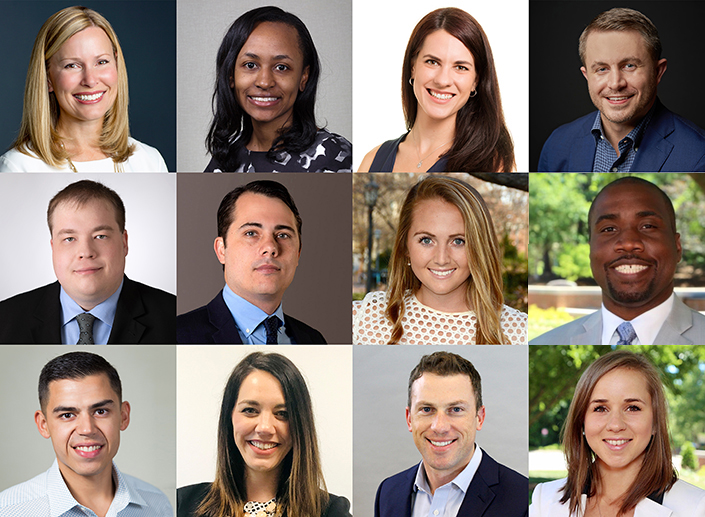
Meet someone like you.
Inspiring stories of student
success and career ROI
Complete the fields below. Fields marked with “*” are required.
Join us as we celebrate the fascinating world of debits, credits, revenue, expenses and, of course, profit.
We regularly host webinars and live events. Ask your questions and learn more about the profession, the degree and our program.
At all levels, our graduates have achieved remarkable success in accounting roles, on finance teams, and in the business world.








